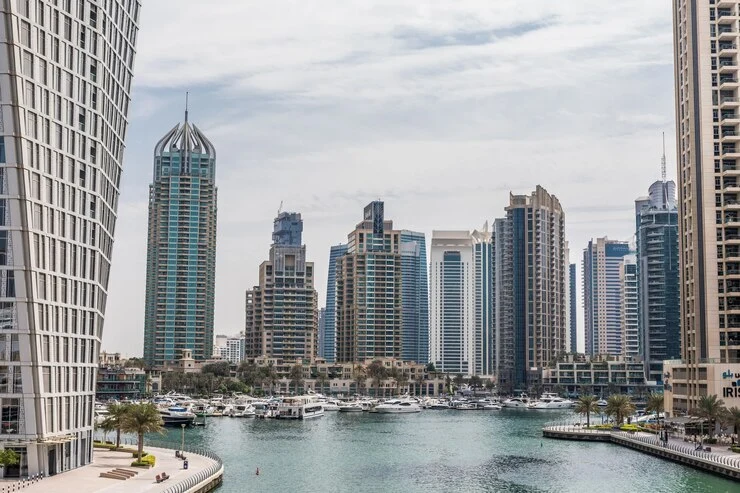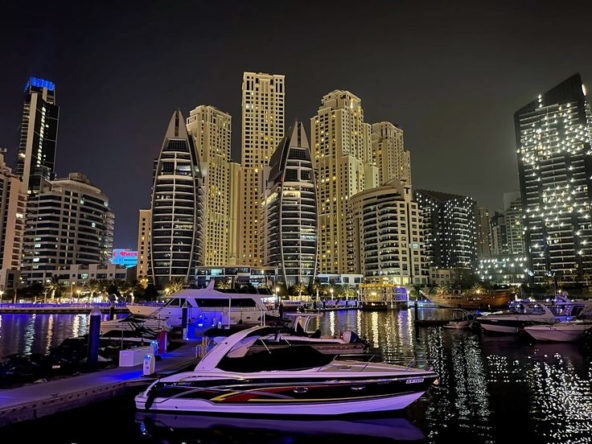5 Powerful Steps to List and Request Real Estate in Dubai
Dubai’s real estate market is one of the most dynamic and attractive in the world. This market is characterized by its dynamism and ability to attract investors from all over the world, thanks to the continuous innovation and advanced infrastructure that the emirate enjoys. In this comprehensive article, we will review five basic steps to evaluate supply and demand in the Dubai real estate market, which will help investors make informed and informed decisions.

5 Powerful Steps to List and Request Real Estate in Dubai
Step 1: Analyze the Dubai Real Estate Market
To understand the dynamics of the real estate market in Dubai, it is essential to conduct a comprehensive analysis that takes into account several influential factors:
1. Government Policies
Government initiatives play a pivotal role in shaping the market. For example, the freehold law for foreigners in specific areas, and the golden visa programs, have greatly enhanced Dubai’s attractiveness to foreign investors.
2. Economic Changes
The real estate market is directly affected by the emirate’s economic performance. Growth in sectors such as tourism, trade, and financial services positively impacts real estate demand.
3. Global Trends
As a global city, Dubai is influenced by global trends in real estate, such as the growing interest in green and smart buildings.
4. Technological Innovation
Dubai is heavily embracing technology in the real estate sector, from digital buying and selling to smart buildings.
5. Sustainability
Sustainable and environmentally friendly projects have become a key factor in attracting investors and buyers alike.
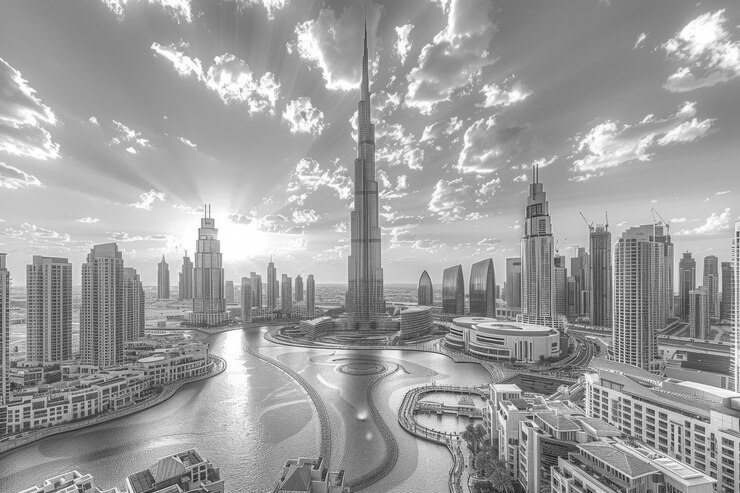
Step 2: Reviewing the Dubai Real Estate Market Over the Past 20 Years
To understand the current state of the market and anticipate its future trends, it is important to study its history over the past two decades:
1. The beginning of the millennium (2000-2007):
This period witnessed an unprecedented real estate boom, with the launch of mega projects such as Palm Jumeirah and Burj Al Arab.
2. The global financial crisis (2008-2010):
The Dubai real estate market was severely affected, leading to a sharp decline in prices and a slowdown in new projects.
3. The recovery period (2011-2014):
The market began to recover gradually, supported by government reforms and the return of investor confidence.
4. Volatility and stability (2015-2019):
The market witnessed a period of volatility, followed by relative stability with a greater focus on sustainable development.
5. New Challenges and Opportunities (2020-present):
Despite global challenges, Dubai’s real estate market has shown great resilience, with increased interest in luxury properties and flexible office spaces.
Step 3: Analyzing Dubai’s real estate prices over the past decade
Tracking price movements over the past decade provides valuable insights into market trends:
1. 2013-2014
: This period saw a significant increase in prices, driven by economic optimism and Dubai’s bid to host Expo 2020.
2. 2015-2020
: The market witnessed a gradual correction in prices, increasing affordability and attracting a wider range of buyers.
3. 2021-2023
: The market recorded a significant increase in prices, especially in the luxury real estate sector, driven by increased demand from international investors.
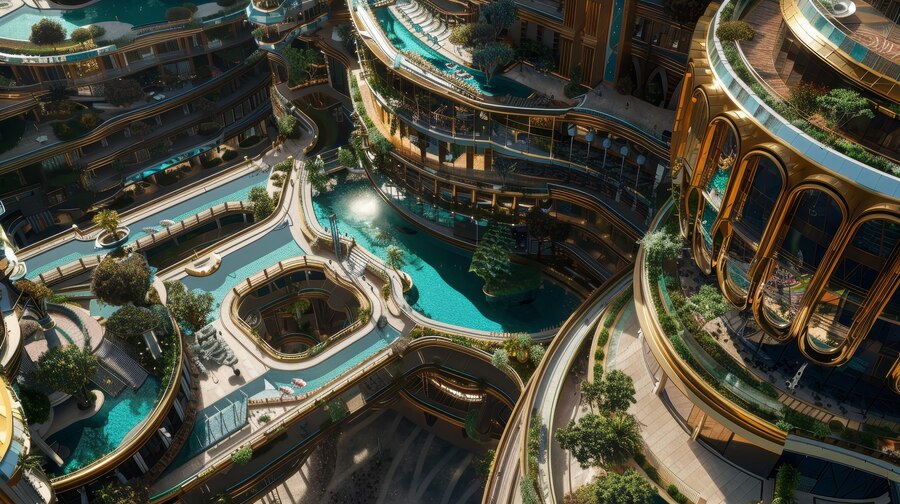
Step 4: Review Dubai Real Estate Market Report and Statistics
Recent reports and statistics provide a clear picture of the current market situation:
1. Transaction volume:
2023 set a record for the number and value of real estate transactions, indicating strong confidence in the market.
2. New projects:
There is a significant increase in the number of new projects, especially in the luxury and sustainable real estate sector.
3. Foreign investment:
Dubai has witnessed a significant increase in foreign real estate investment, driven by legal reforms and market attractiveness.
4. Technology in the real estate sector:
The increasing use of technology in buying and selling processes, and property management, which enhances market efficiency.
Step 5: Dubai Real Estate Market Forecast 2025 and 2030
Based on current trends and Dubai’s future vision, the following can be expected:
1. 2025 Forecast:
– Continued growth in the luxury and sustainable real estate sector.
– Increased investments in smart residential and commercial projects.
– Expansion in the use of virtual and augmented reality technologies in displaying and selling real estate.
2. Vision 2030:
– Transforming Dubai into a fully smart city, with technology integrated into all aspects of real estate life.
– Significant increase in zero-emission buildings powered by renewable energy.
– Developing sustainable and integrated communities that combine living, working and leisure.
A real estate market analysis in Dubai shows that the city continues to strengthen its position as a global hub for real estate investment. By understanding supply and demand dynamics, absorbing historical developments, and monitoring current trends, investors can make informed decisions and capitalize on opportunities in this dynamic market. With Dubai’s continued commitment to sustainability and innovation, it is expected to remain an attractive destination for investors and residents alike for the foreseeable future.

Top Trends in Smart Building Design in Dubai
Dubai is witnessing a remarkable development in the field of smart building design, and there are several prominent trends in this field:
1. Integration with the Internet of Things (IoT):
– Integrated building management systems
– Smart sensors to monitor energy and water consumption
– Smart control of lighting and air conditioning
2. Energy efficiency and sustainability:
– Use of solar panels and renewable energy technologies
– Water recycling and reuse systems
– Environmentally friendly and sustainable building materials
3. Advanced security and safety:
– Smart monitoring systems using artificial intelligence
– Facial recognition and biometric technologies
– Advanced fire alarm and extinguishing systems
4. Voice technology and voice control:
– Voice control systems for building functions
– Integration of smart voice assistants
5. Smart facades:
– Facades that adapt to climate conditions
– Automatically dimmable smart glass
6. Intelligent transportation systems:
– Smart elevators powered by artificial intelligence
– Automated parking systems
7. Augmented and virtual reality technologies:
– Using AR/VR in building management and maintenance
– Interactive experiences for visitors and residents
8. Integrated healthcare:
– Health monitoring systems for elderly populations
– Integration with emergency medical services
9. Smart waste management:
– Automated sorting and recycling systems
– Real-time monitoring of waste levels
10. Blockchain technologies:
– Lease and ownership management
– Tracking of resource consumption and distribution
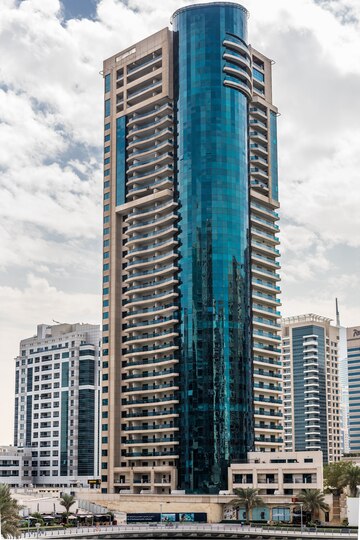
How is a property evaluated?
A property evaluation is usually done through several main steps, including:
1. Market study:
– Analyzing the local market and understanding current trends.
– Comparing the property to similar properties in the area.
2. Field inspection:
– Visiting the property to assess its general condition.
– Checking the quality of construction and design.
3. Site analysis:
– Studying the geographical location and its proximity to facilities and services.
– Evaluating the area in terms of safety and social level.
4. Economic factors:
– Analyzing economic factors such as demand for the property and interest rates.
– Studying the local economy and its impact on the market.
5. Using evaluation methods:
– Comparison method: Comparing the property to recently sold properties.
– Income method: Evaluating the property based on the expected returns from it.
– Cost method: Calculating the cost of building the property again and deducting the acquisition.
6. Legal reports:
– Ensuring the integrity of legal papers and registering the property.
– Checking any legal restrictions or obligations.
These steps help determine the fair market value of the property accurately.
How many days does it take to evaluate a property?
The duration of a property evaluation depends on several factors, but it usually takes between 3 to 10 days. This period includes:
1. Information gathering: Obtaining the necessary data and documents.
2. Field inspection: Visiting the property and assessing its condition.
3. Data analysis: Comparing the property to similar properties.
4. Report preparation: Preparing the final evaluation report.
The duration may vary depending on the size of the property and the complexity of the evaluation.
How to be a real estate marketer in Dubai?
To become a successful real estate marketer in Dubai, you can follow the following steps:
1. Education and training:
– Take courses in real estate marketing.
– Learn about the real estate market in Dubai and current trends.
2. Registration and licensing:
– Register with the Real Estate Regulatory Agency (RERA).
– Obtain the required real estate license.
3. Networking:
– Build relationships with real estate agents and investors.
– Participate in real estate events and conferences.
4. Market knowledge:
– Follow the latest projects and developments in Dubai.
– Be aware of local regulations and laws.
5. Marketing strategies:
– Use social media to promote real estate.
– Develop effective communication and presentation skills.
6. Working with a real estate agency:
– Join a reputable real estate agency to gain experience.
– Benefit from the agency’s support in building a client base.
With your commitment and development of skills, you can achieve success as a real estate marketer in Dubai.
What are the most important laws that I should know as a real estate investor in Dubai?
As a real estate investor in Dubai, there are several important laws that you should be aware of:
1. Real Estate Ownership Law:
– Defines the ownership rights of foreigners and residents in specific areas.
2. Rental Law:
– Defines the relationship between the landlord and the tenant, including rent increases and contract renewals.
3. Real Estate Registration Law:
– Requires that all real estate transactions be registered with the Department of Land and Property.
4. Freehold Law:
– Allows foreigners to own real estate in freehold areas.
5. Investor Protection Law:
– Aims to improve transparency and protect the rights of investors.
6. Building and Development Laws:
– Defines the requirements for construction and sustainability in real estate projects.
Understanding these laws will help you make safe and effective investment decisions.
What areas can I invest in as a foreign investor?
As a foreign investor, you can invest in freehold areas in Dubai. Some of these areas include:
1. Palm Jumeirah
2. Dubai Marina
3. Downtown Dubai
4. Business Bay
5. Dubai Sports City
6. Mohammed Bin Rashid City
These areas are characterized by the availability of diverse properties and attractive investment opportunities.
Are there any special legal requirements for investing in Dubai?
Yes, there are legal requirements for investing in Dubai as a real estate investor:
1. Obtaining an investor visa:
– It can be obtained when purchasing a property of a certain value.
2. Real estate registration:
– The property must be registered with the Land and Property Department.
3. Dealing with approved developers:
– Investing in projects developed by government-approved developers.
4. Opening a local bank account:
– To facilitate financial transactions related to the property.
5. Complying with local laws:
– Such as building and rental laws.
Ensuring these requirements helps facilitate the investment process and ensure legal compliance.
What is the value of the property required to obtain an investor visa?
To obtain an investor visa in Dubai, the property value must be at least AED 1 million.
